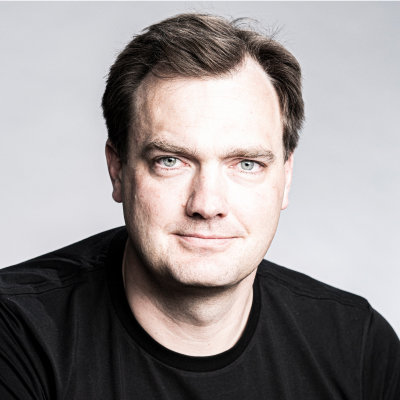 In meiner Timeline kann ich mich vor begeisterten TESLA Fans und ebenso trotzigen Reaktionen kaum noch retten. Auch wenn zumindest klarer wird, dass elektrische Antriebe in den nächsten Jahren dominieren werden, ist umso umklarer wer das Rennen machen wird und wie die Deutsche Automobilindustrie aus der Sache rauskommen kann. Nun hat Mercedes in der letzten Woche seine eigene (erste) Elektroautointerpretation vorgestellt (Der neue EQC) was die Diskussion aber nicht beruhigen kann, sondern noch anheizt. Zwischen all dem Getöse ist es gar nicht mal so einfach eine Meinung zu bilden, weil viele Argumente extrem emotional aufgeladen sind. Ja, auch ich bin einer Benz Fan (W124 forever), aber trotzdem wird nach dem, hoffentlich noch weit in der Ferne liegenden, Ableben unseren Familienkombis (Mondeo) kaum noch ein Verbrenner angeschafft. Aber was wird es dann werden? Ein TESLA, ein Mercedes, oder doch eine Art Prius 3.0? Diese Frage wird gerade in einem Artikel von Benedict Evans beantwortet. Er weist darin für mich glaubwürdig nach, dass die größte Gefahr für Mercedes & Co. nicht etwas TESLA ist, sondern die eigene Behäbigkeit. Sehr spannend für alle Autofans unter den Kassenzone Lesern!
In meiner Timeline kann ich mich vor begeisterten TESLA Fans und ebenso trotzigen Reaktionen kaum noch retten. Auch wenn zumindest klarer wird, dass elektrische Antriebe in den nächsten Jahren dominieren werden, ist umso umklarer wer das Rennen machen wird und wie die Deutsche Automobilindustrie aus der Sache rauskommen kann. Nun hat Mercedes in der letzten Woche seine eigene (erste) Elektroautointerpretation vorgestellt (Der neue EQC) was die Diskussion aber nicht beruhigen kann, sondern noch anheizt. Zwischen all dem Getöse ist es gar nicht mal so einfach eine Meinung zu bilden, weil viele Argumente extrem emotional aufgeladen sind. Ja, auch ich bin einer Benz Fan (W124 forever), aber trotzdem wird nach dem, hoffentlich noch weit in der Ferne liegenden, Ableben unseren Familienkombis (Mondeo) kaum noch ein Verbrenner angeschafft. Aber was wird es dann werden? Ein TESLA, ein Mercedes, oder doch eine Art Prius 3.0? Diese Frage wird gerade in einem Artikel von Benedict Evans beantwortet. Er weist darin für mich glaubwürdig nach, dass die größte Gefahr für Mercedes & Co. nicht etwas TESLA ist, sondern die eigene Behäbigkeit. Sehr spannend für alle Autofans unter den Kassenzone Lesern!
Schöner Start in den Artikel mit dem nicht mehr wegzudenkenen „iphone Vergleich“.
When many car company people look at a Tesla, they see a not-great car with some cool features that they’re going to build too, being produced at a small fraction of the volumes they’re selling. “Look at the fit and finish, and the panel gaps, and the tent!” The Nokia people were terribly, terribly wrong. Are the car people wrong? We hear that a Tesla is ‘the new iPhone’ – what would that mean? This is partly a question about Tesla, but it’s more interesting as a way to think about what happens when ‘software eats the world’ in general, and when tech moves into new industries. How do we think about whether something is disruptive? If it is, who exactly gets disrupted? And does that disruption that mean one company wins in the new world? Which one?
Und dann beschäftigt er sich mit allen relevanten Argumenten:
Many car industry insiders would say that Tesla has a lead of several years in the engineering and implementation of this. However, lithium batteries and electric motors are not an exotic new technology with lots of primary IP. Nor are there any network effects or ‘winner takes all’ effects. Deterministically, it seems pretty likely that in the medium term (that is, by the time batteries are cheap enough for wholesale conversion of the industry from ICE to electric) both the batteries themselves and the motors and control systems will be mostly commodities. That does not meant there will not still be plenty of science and engineering to them, but rather that just as happened to components for smartphones or PCs (or indeed cars), which also involve a great deal of science and engineering, the entire global electronics industry will be competing to make the best parts, and will sell them to whoever wants to buy. In such an environment, creating great components in-house does not necessarily give you any particular advantage any further up the stack.
Und ja, ein gutes Auto ist nicht genug 🙂
This post began as a much shorter piece about Tesla and Netflix, comparing two companies that are using software to change other industries. But the fascinating things about Tesla is that there are so many different things going on, and so many different kinds of innovation. I’m sure I’ve missed plenty of things. One of the issues that recurs in thinking about Tesla is that tech people don’t really know enough about cars, and car people don’t really know enough about software. But the history of the tech industry is full of companies where having a lovely product, or being the first to see or build the future, were not enough. Indeed, the car industry is the same – a great, innovative car and a great car company are not the same thing.
Der Artikel dient als kleine Ablenkung vor der DMEXCO Woche. Da werden wir sicher auch den ein oder anderen TESLA an den Ständen sehen und ggf. im nächsten Jahr dann schon die EQCs dieser Welt.



